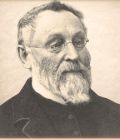COMMON NAME:
ROASTED SPONGE.
Symptoms
sore throat, worse after eating sweet things (A.).
Stiffness in the extremities; arms and legs feel as if they were broken.
Swelling and induration of the glands (Calcarea, Merc-I-F., PHyt.)
Struma (Calcarea, Silicea, Sulphur).
Itching in the swollen glands.
Sensation of numbness of the lower half of the body.
Chronic hoarseness and cough; the voice frequently giving out when talking or singing (Argentum nitricum) (G.).
Great dryness of the mucous membranes of the air passages-throat, larynx, trachea, bronchi-” dry as a horn” (A.).
Every mental excitement increases the cough (A.).
COUGH AGGRAVATED BY SWEETS, COLD DRINKS, SMOKING, LYING WITH HEAD LOW, AND DRY COLD WINDS; AND AMELIORATED BY EATING OR DRINKING WARM THINGS (A.).
Watering of eyes; latterly gummy or mucous discharge, with obscured vision (Kali bichromicum, Kali-S., Natrum muriaticum).
Goitre, swollen and hard; suffocative at night; in persons who live in villages (N.).
Cough aggravated by talking, reading singing, swallowing and lying with head low (N.).
Croupy cough, worse on awakening out of sleep (N.).
Bronchitis and inflammation of the larynx (Bromium, Phosphorus, Silicea).
Clearing of throat constantly (Argentum nitricum, Kali bichromicum, Phosphorus).
Of great value in hoarseness (Arg-M., Causticum, Kali bichromicum, Phosphorus, Silicea).
Cough dry and sibilant, sounds like a saw driven through a pine- board (croup) (N.).
Great dryness slow the larynx, with hoarse, hollow, wheezing cough (Phosphorus) (N.).
BARKING COUGH (Aconite, Drosera, Hepar, Stramonium), DAY AND NIGHT (K.).
Awakens out of sleep with a sense of suffocation, with violent loud cough, great alarm, agitation, anxiety and difficult respiration.
Palpitation of the heart before the catamenia (Alumina, Cact., Cuprum, Ignatia, Iodium, Natrum muriaticum, Sepia, Zincum met.).
Attacks of severe oppression and pain in the region of the heart; all the symptoms aggravated by lying with the head low; inability to lie down at night (Be.).
CROUP: ANXIOUS, WHEEZING; WORSE DURING INSPIRATION (worse during expiration-Acon); AGGRAVATED BEFORE MIDNIGHT (aggravated before morning-Hepar) (A.).
Valvular insufficiency (Spigelia) (A.).
Angina, pectoris; contracting pain, heat, faintness, suffocation, anxiety and sweat; worse after midnight (A.).
Constipation (Alumina, Bryonia, Causticum, Graphites, Hepar, Kali-M., Lycopodium, Natrum muriaticum).
Frequent urging to urinate (Belladonna, Cantharis, Ferr-P., Kali-P., Lycopodium, Nux vomica, Pulsatilla, Sepia) (C.).
Coldness in the back, not relieved by warmth of stone (C.).
Feverish heat, with hot, dry skin (Aconite, Arsenicum, Sulphur) (C.).
Congestion of blood to the head (Aconite, Belladonna, Ferr-P., Gloninum, Lachesis, Meli., Natrum muriaticum, Opium, Sepia, Sulphur, Verat-V.) (C.).
Sharp stitches in the left temple extending to the forehead (C.).
Fluent coryza, with much sneezing (Aconite, All-C., Sabad.) (C.).
Dry coryza: nose stopped (Alumina, Nux vomica, Sepia, Silicea) (C.).
Sleep interrupted by dreams (Nux vomica, Sulphur) (C.).
Useful for pulmonary tuberculous following pneumonia, with chronic hoarseness, profuse expectoration and suffocative attacks of night (R.).
TESTICLES SWOLLEN, BRUISED, SQUEEZED, AFTER SUPPRESSED GONORRHOEA OR MALTREATED ORCHITIS (Pulsatilla) (A.).
Swelling of the testicles (Clem., Conium, Pulsatilla, Rhododendron, Rhus toxicodendron, Silicea).
Inflammation and induration of the testicles (Hm.).
Spermatic cord swollen, painful (Clem, Pulsatilla, Rhododendron) (A.).
Menses preceded by colic, soreness in the sacrum, and craving in the stomach (G.).
Violent drawing in the upper and lower extremities during the menses (G.).
Catamenia too early and too profuse (Calcarea, China, Kali-P., Nit- Ac., Pulsatilla, Sabina, Secale).
Induration and enlargement of the ovaries (Aurum, Iodium, Mercurius). (Bt.).
AGGRAVATION :
After sleep; in dry, cold wind; when roused from sleep; from exertion; from raising arms; before midnight; from lying with the head low; from sweets; and from cold drinks.
AMELIORATION :
Many symptoms (with the exception of those of respiratory organs) are relieved by rest; by eating or drinking warm things; and when descending.
RELATIONSHIP :
Spongia follows well after: Aconite and Hepar, in cough and croup when dryness prevails; after Spongia, Hepar, when mucus commences to rattle.
Compare: Arnica Causticum, Iodium, Lachesis and Nux-M. (sputa loosened, but must be swallowed again).
Antidote: Camph.

